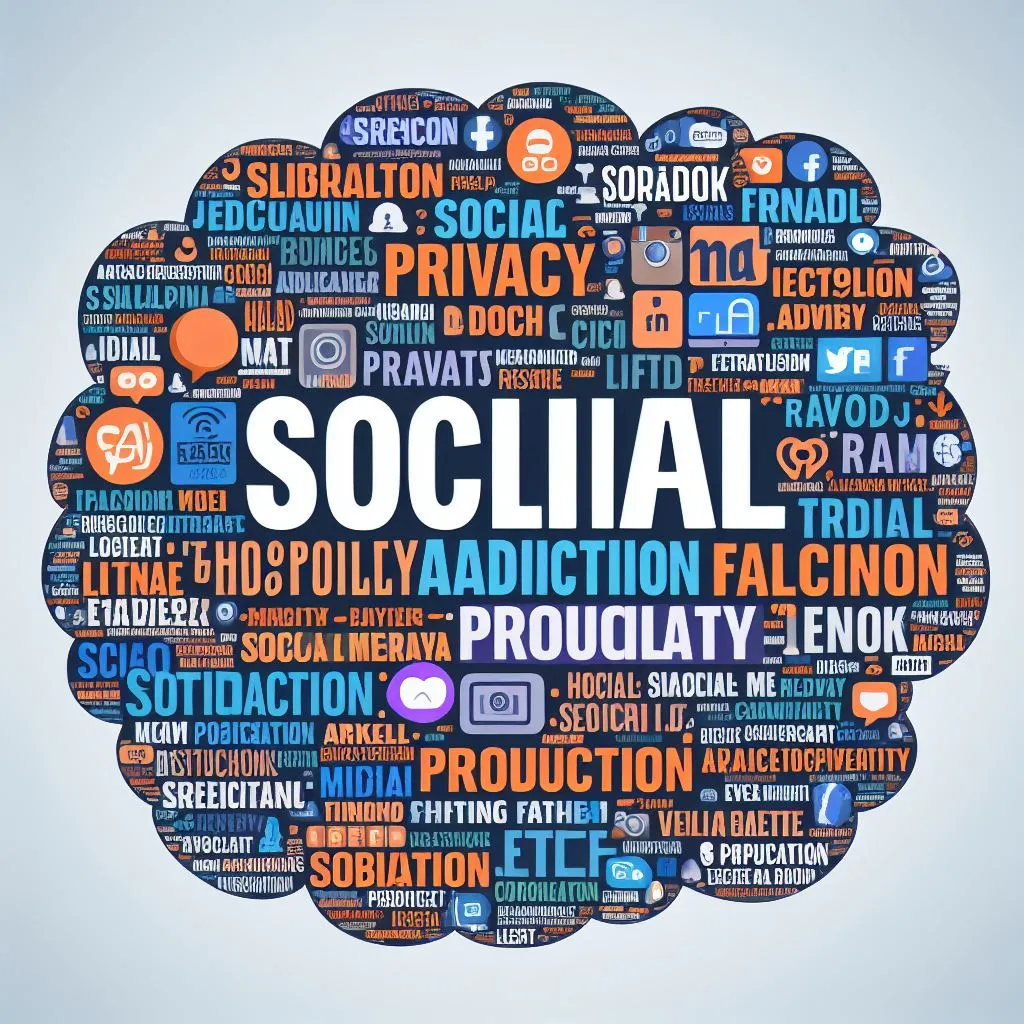Social media has evolved into an integral part of modern life, transforming the way we communicate, share information, and connect with others. It’s essential to delve into the patterns and effects of our social platforms usage to comprehend its impact comprehensively.
Table of contents
- Importance of Social Media in Daily Life
- Frequency of Social Media Usage
- Effects of Excessive Social Media Use
- Mental Health Impact:
- Reduced Productivity and Focus:
- Sleep Disruption:
- Benefits of Moderated Social Media Usage
- Strategies for Balancing Social Media Use
- Psychological Factors Driving Social Media Addiction
- Social Media and Relationships
- Conclusion
- FAQ’s
Importance of Social Media in Daily Life
In today’s digital age, the prevalence of social platforms has skyrocketed. Statistics reveal that the average person spends a significant portion of their day engaged with various social media applications. This pervasive presence has reshaped how we interact, communicate, and even conduct business.
Frequency of Social Media Usage
Understanding the frequency of social media usage involves dissecting our habits and tendencies concerning these platforms. Factors like personal preferences, societal norms, and even time availability influence how often individuals engage with social platforms

Effects of Excessive Social Media Use
While social platforms offers immense connectivity, excessive usage can have detrimental effects on mental health and productivity. Studies have linked prolonged screen time with increased anxiety, depression, and decreased overall well-being.
Mental Health Impact:
Anxiety and Depression:
- Excessive social platforms use has been associated with heightened levels of anxiety and depression due to factors like comparison, cyberbullying, and fear of missing out (FOMO).
Negative Self-Esteem:
- Constant exposure to idealized images and lifestyles can contribute to lowered self-esteem, leading to feelings of inadequacy.
Reduced Productivity and Focus:
Distraction:
- Frequent notifications and scrolling can disrupt concentration, leading to decreased productivity in work or daily tasks.
Procrastination:
- Social media can become a procrastination tool, diverting attention away from important responsibilities.
Sleep Disruption:
Blue Light Impact:
Exposure to the blue light emitted by screens can interfere with the body’s production of melatonin, affecting sleep quality and quantity.
Late-Night Use:
- Engaging with social media late at night can lead to difficulty falling asleep and disrupted sleep patterns.
Benefits of Moderated Social Media Usage
However, moderation in social platforms consumption offers numerous advantages. It fosters connections with like-minded individuals, provides learning opportunities, and serves as a platform for sharing diverse perspectives and ideas.
| Benefit | Explanation |
| Enhanced Connections | Moderated usage fosters meaningful connections with like-minded individuals, building stronger relationships. |
| Learning Opportunities | Controlled consumption allows for accessing educational content, tutorials, and resources for continuous learning. |
| Diverse Perspectives | It serves as a platform to share and explore diverse viewpoints, promoting open-mindedness and understanding. |
| Improved Mental Health | Limiting exposure reduces anxiety and stress associated with constant social comparison and negative interactions. |
| Time Management | Moderate use encourages better time allocation, preventing excessive scrolling and maximizing productivity. |
| Privacy and Security | Controlled engagement mitigates risks of oversharing personal information, enhancing online safety and privacy. |
Strategies for Balancing Social Media Use
To maintain a healthy relationship with social media, it’s crucial to establish boundaries and explore alternative activities that promote personal growth and well-being. Setting limits on screen time and engaging in offline pursuits can significantly impact overall satisfaction and mental health. Several apps and tools enable users to track their social platforms usage actively. Self-assessment techniques aid in understanding one’s reliance on these platforms, leading to more conscious and controlled usage.
Psychological Factors Driving Social Media Addiction
Understanding the psychological mechanisms behind social media addiction, such as the dopamine response triggered by likes and shares, sheds light on the addictive nature of these platforms. The algorithms employed by social platforms significantly impact user behavior and decision-making. The tailored content and targeted advertisements shape users’ perceptions and choices.

Social Media and Relationships
Social media’s influence extends to personal relationships, affecting communication dynamics and intimacy levels. Prioritizing face-to-face interactions and establishing digital detox routines can foster healthier relationships.
Conclusion
Balancing the benefits and drawbacks of social platform usage is pivotal. Striking a healthy equilibrium between online presence and offline engagement can lead to a more fulfilling and balanced life.
Readmore : An Instance of Posting Promotional Material on Social Media
Read About: Is Deleting Social Media a Sign of Depression?
FAQ’s
Ideally, it’s recommended to limit media usage to about 1-2 hours per day. However, the ideal duration can vary for each person.
Yes, several signs might indicate excessive media use, such as feeling anxious or restless when unable to check social platforms
While excessive use can have negative effects, controlled and purposeful social engagement can have positive impacts on mental health.
Setting specific time limits for media, using apps to track usage, engaging in offline activities.




